Shaping the Future of Cancer Care: A Recap of the 2024 Arizona Intertribal Cancer Health Equity Forum
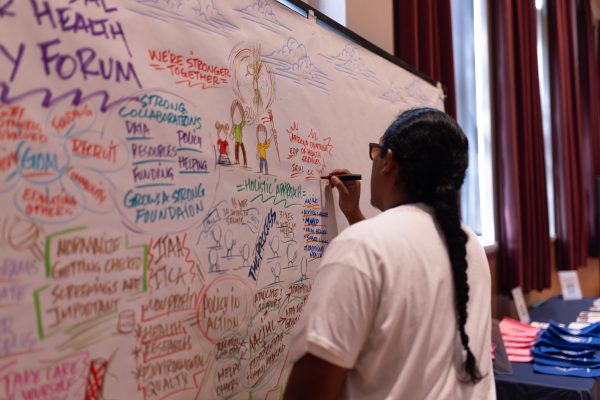
On October 8, 2024, the Center for Native American Cancer Health Equity (C-NACHE) hosted the second annual Arizona Intertribal Cancer Health Equity Forum (AICHEF) at Northern Arizona University’s Ashurst Hall. This all-day event brought together over 80 attendees, including tribal leaders, health professionals, researchers, advocates, and students, to discuss cancer health disparities in Native communities and strategies for achieving equity.
The day offered a robust agenda, combining presentations, panel discussions, and interactive dialogues. This year’s forum explored the critical role of policy advocacy, community-driven initiatives, and cultural knowledge in reshaping cancer care for Indigenous populations.
Highlights from the Forum
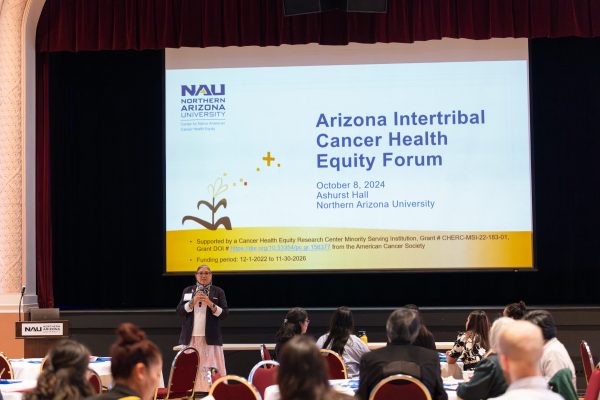
Welcome and Opening Remarks
The day began with a warm welcome from C-NACHE Director Dr. Nicky Teufel-Shone, followed by an opening prayer by Tanya ‘T.J.’ Riggs, a member of C-NACHE’s Community Advisory Board. Dr. Teufel-Shone provided an overview of the center’s mission to advance Native cancer health equity, setting the tone for the day’s discussions.
Policy Advocacy: Addressing Cancer Health Disparities
Speakers emphasized the importance of advocacy to overcome systemic barriers to cancer care for tribal communities.
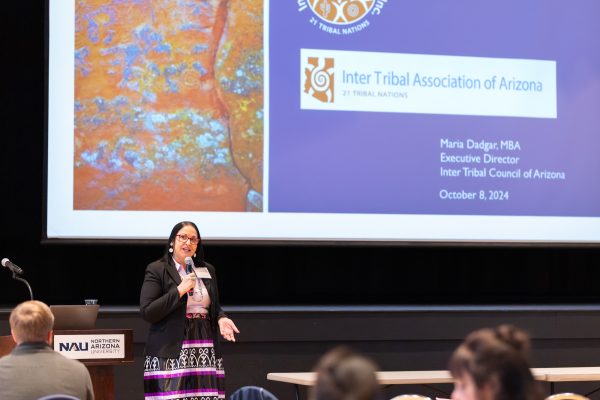
Maria Dadgar,MBA, Executive Director of the Inter-Tribal Council of Arizona, outlined how her organization serves as a collective voice for Arizona’s 22 federally recognized tribes. She highlighted the significance of collaboration to influence state and federal policies affecting healthcare access for Native populations.
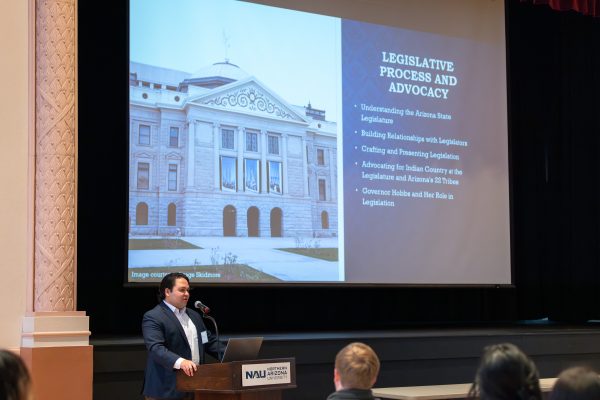
Jay Tomkus, JD, of Corvid Consulting, delved into the complexities of navigating Arizona’s legislative processes and shared an inspiring case study on restoring dental services for Native communities.
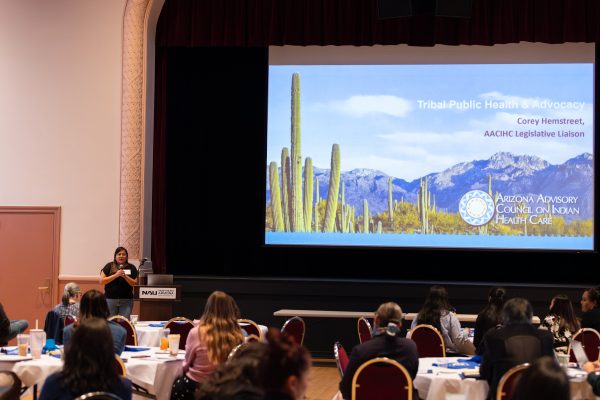
Corey Hemstreet, MPH, of the Arizona Advisory Council on Indian Health Care, detailed efforts to advance tribal health systems and the need for ongoing advocacy to address gaps in Medicaid and Medicare services for cancer patients.
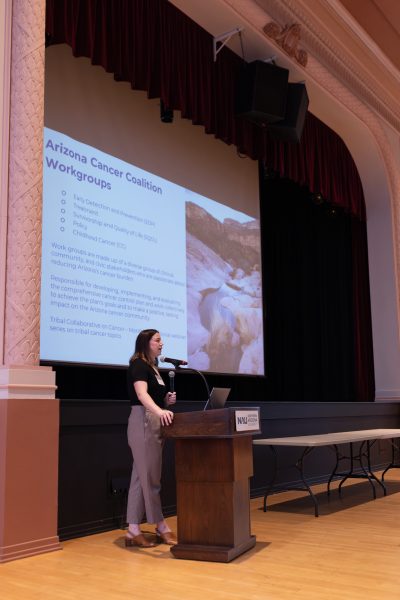
Cassie Webb, MPH, of the Arizona Department of Health Services, highlighted the Comprehensive Cancer Control Program and how it exemplifies a collaborative, equity-driven approach to reducing cancer disparities by integrating data, community voices, and targeted strategies to address social determinants of health.
These sessions underscored how partnerships, persistence, and compelling storytelling are critical tools in advocating for equitable healthcare policies.
CHR Panel: Community Health Representatives as Cancer Navigators
A highlight of the forum was a panel discussion featuring Community Health Representatives (CHRs) and program leaders who demonstrated the impact of CHRs in addressing cancer-related barriers in tribal communities
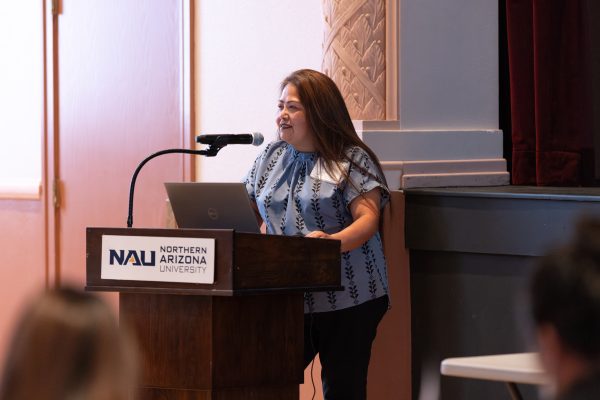
Sonja Banyacya, Field Coordinator for the Navajo Nation Breast and Cervical Cancer Prevention Program, provided an overview of patient navigation and how it should be health equity focused to eliminate barriers to care and improve access to care.
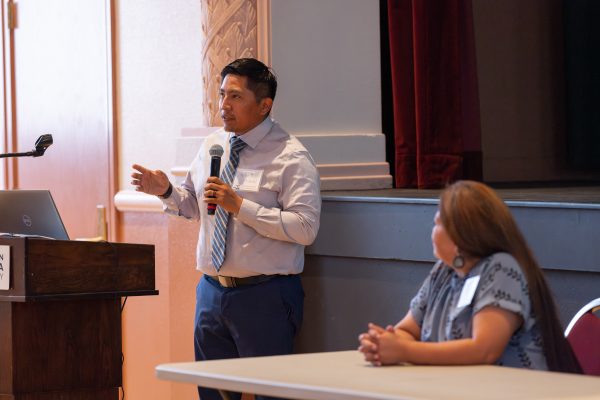
Kellen Polingyumptewa, Interim Manager of The Hopi Breast and Cervical Cancer Early Detection Program showcased how CHRs use innovative strategies like “Pap Rallies” and mobile outreach units to increase screening rates.
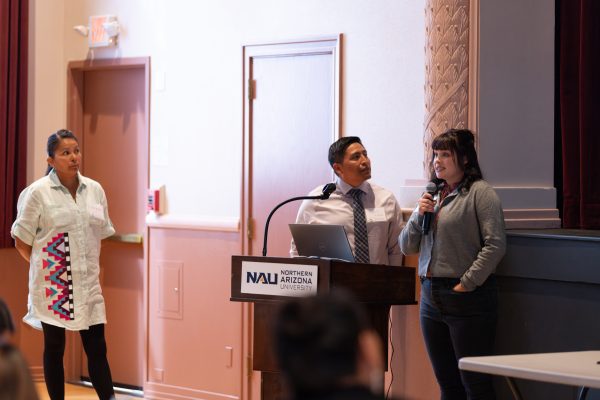
Melinda Smith, PhD, and Elvia Sanchez shared their experiences creating a culturally tailored curriculum connecting type 2 diabetes to cancer risks, highlighting the importance of linking chronic disease prevention with cancer care.
The panel emphasized the CHRs’ role in improving patient outcomes through culturally sensitive navigation, from scheduling screenings to providing transportation and emotional support.
NASWAC Cohort Member Panel
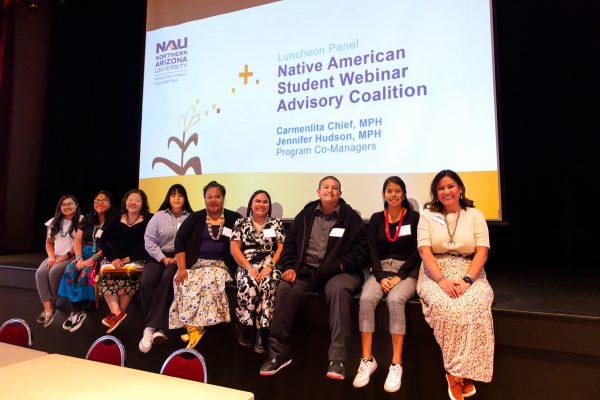
Inaugural members of Native American Student Webinar Advisory Coalition (NASWAC) virtual mentorship program hosted a lunchtime panel discussion for AICHEF attendees.
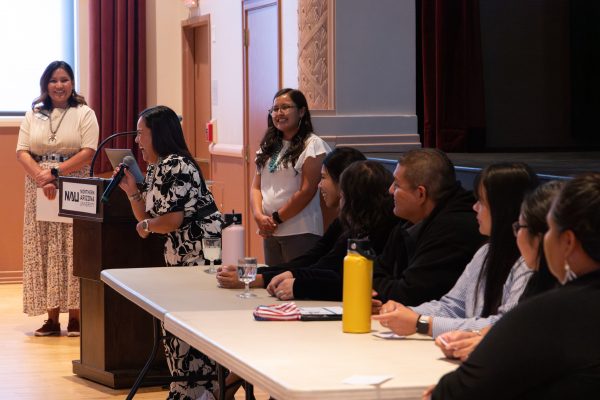
The NASWAC panel reflected on the transformative impact of shared experiences, personal connections, and professional growth within the program.
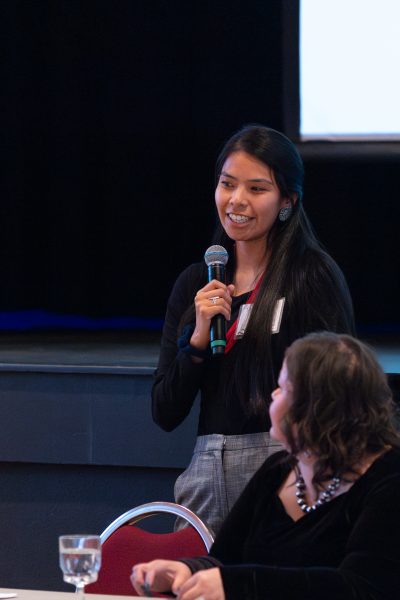
Panelists highlighted the importance of Indigenous representation in research, health equity, and leadership.
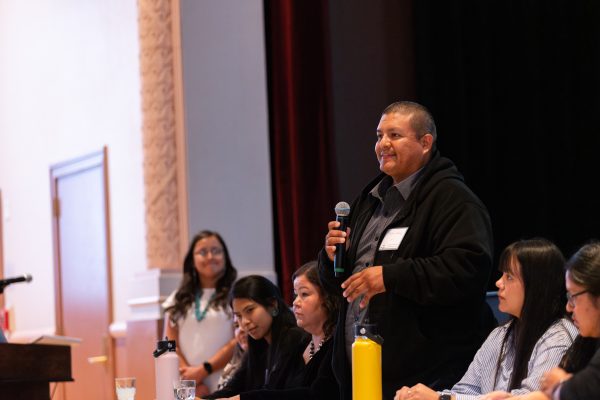
Participants shared deeply personal journeys, from overcoming barriers to finding inspiration in mentors and cohorts.
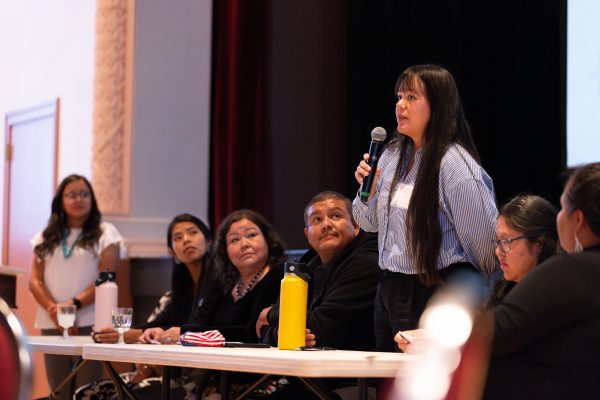
They emphasized the power of relationships, storytelling, and intergenerational wisdom to navigate the path forward.
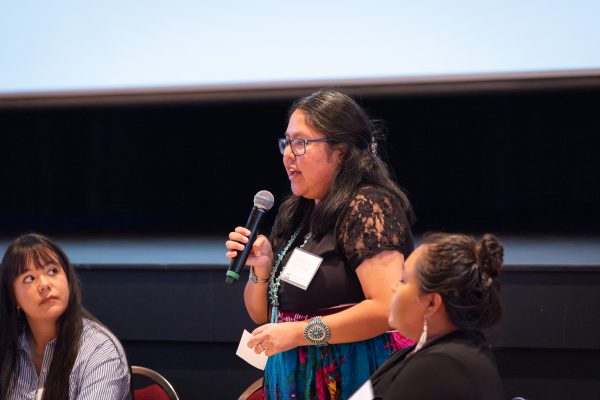
The discussion underscored the sacred responsibility of serving Native communities with intention, humility, and perseverance.
Case Studies: National Resources and Tribal Successes
The forum featured inspiring case studies demonstrating how national programs and localized initiatives can work together to reduce cancer disparities.
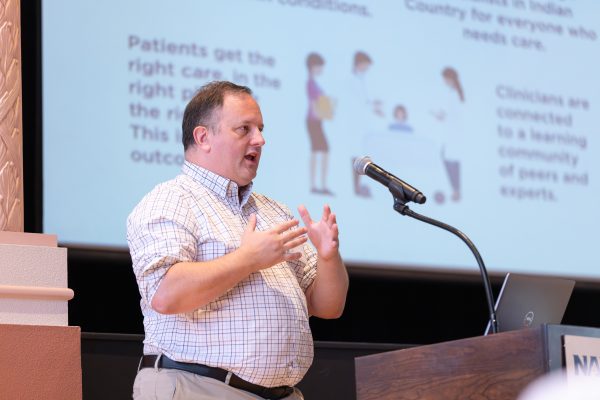
Eric Vinson, Project Director of the Northwest Portland Area Indian Health Board introduced the Tribal Cancer ECHO, a virtual resource that democratizes access to cancer education and expertise for tribal health professionals.
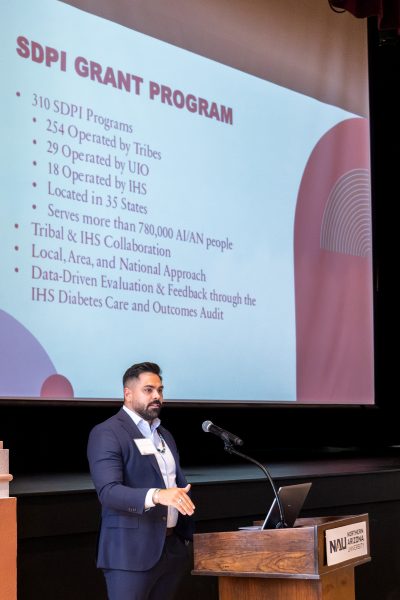
AC Locklear, JD, Interim CEO of the National Indian Health Board, shared lessons from the Special Diabetes Program for Indians (SDPI), which has achieved remarkable success in addressing diabetes in Native communities. Attendees explored whether a similar model could be adapted for cancer care.
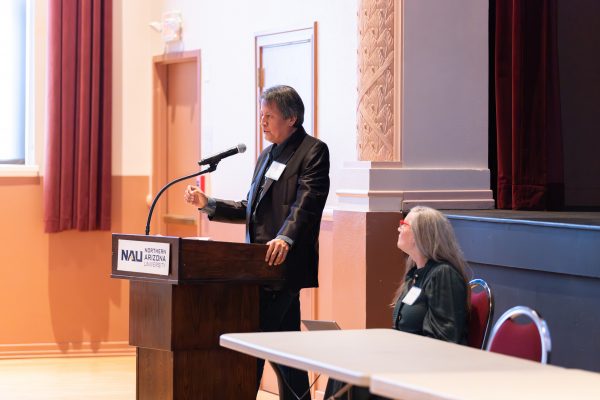
Jeff Tomhave, JD, and Brandy Tomhave, JD, of the Tomhave Group, discussed how transforming cancer care access in Native communities requires radical compassion, strategic advocacy, and innovative partnerships, combined with a commitment to challenging the status quo and amplifying Indigenous stories to fuel systemic change.
Interactive Discussions and SWOT Analysis
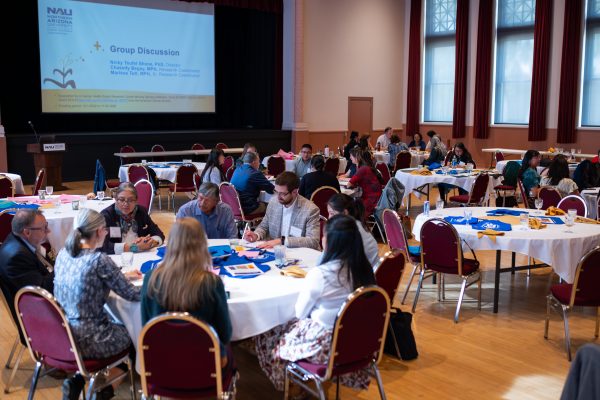
An afternoon group discussion focused on the sustainability of a potential intertribal coalition to advance cancer care across the continuum. A SWOT analysis facilitated by C-NACHE staff revealed key insights:
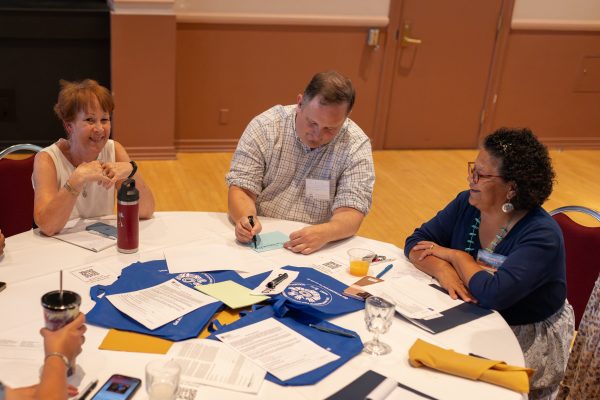
Strengths: Strong tribal leadership, a spirit of collaboration, and the ability to incorporate Indigenous knowledge systems into healthcare strategies.
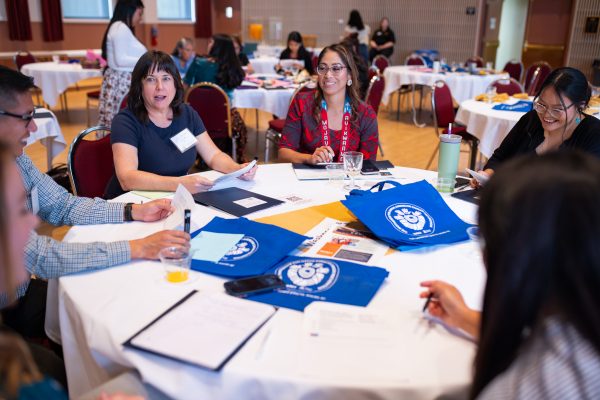
Weaknesses: Limited resources, leadership turnover, and inconsistent data availability and infrastructure.
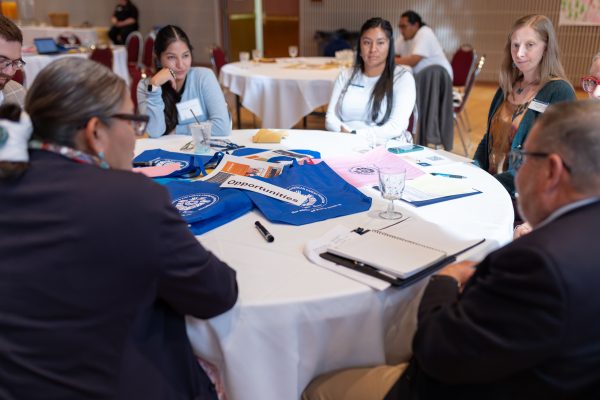
Opportunities: Improved screening access, culturally adapted education, and the potential for unified advocacy efforts to secure long-term funding.
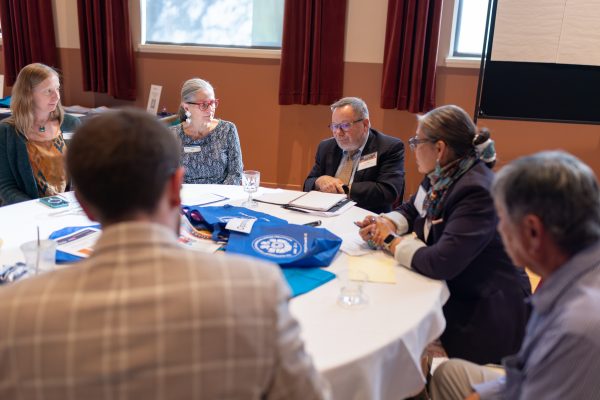
Threats: Lack of sustained funding, difficulties in establishing formal organizational structures, and the challenges of maintaining momentum amidst competing health priorities.
Reflections and the Path Forward
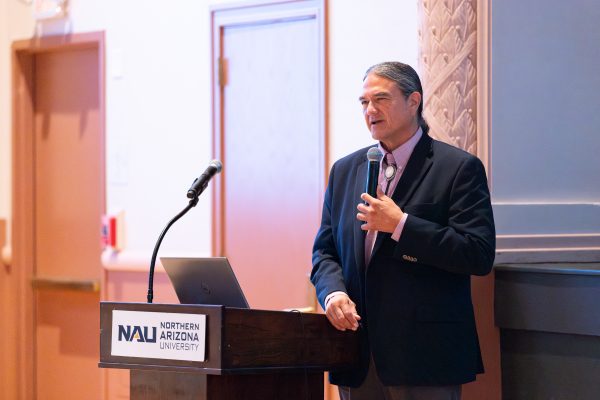
Dr. Donald Warne, a national leader in Indigenous health equity, delivered a compelling keynote on the intersection of public health and policy. He urged attendees to think “upstream” by addressing the root causes of cancer disparities and to blend Indigenous knowledge with modern medical practices.
The day concluded with attendees reflecting on the need for actionable goals and ongoing collaboration. Participants emphasized that solutions must be culturally grounded, data-informed, and community-driven.
Looking Ahead
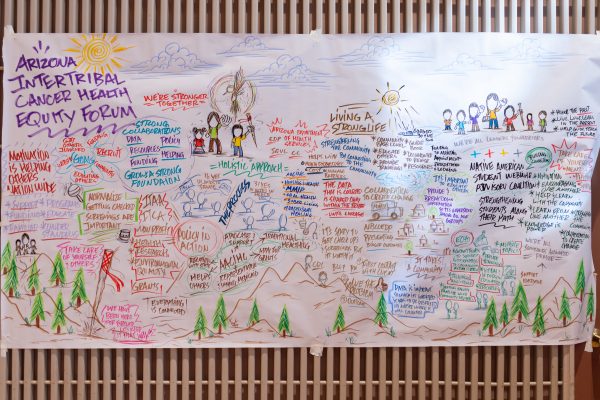
The AICHEF 2024 was more than a gathering; it was a call to action. Participants left with a renewed commitment to:
- Advocate for policies that expand cancer care access and funding for Native communities.
- Build coalitions across tribes and disciplines to sustain progress.
- Leverage Indigenous knowledge and storytelling to drive systems change.
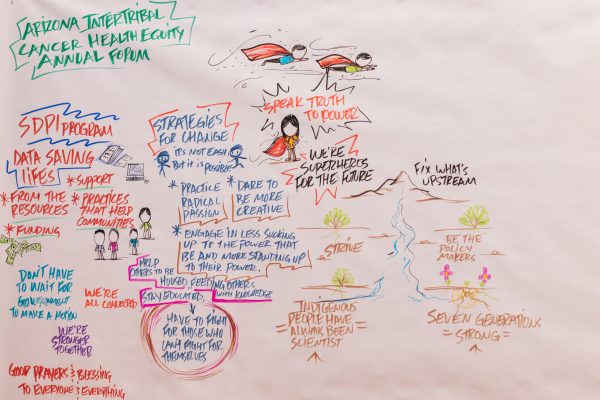
C-NACHE is dedicated to continuing these conversations and turning the ideas shared into tangible outcomes. Stay tuned for updates on our projects and initiatives as we work toward a future of cancer health equity for Native populations.